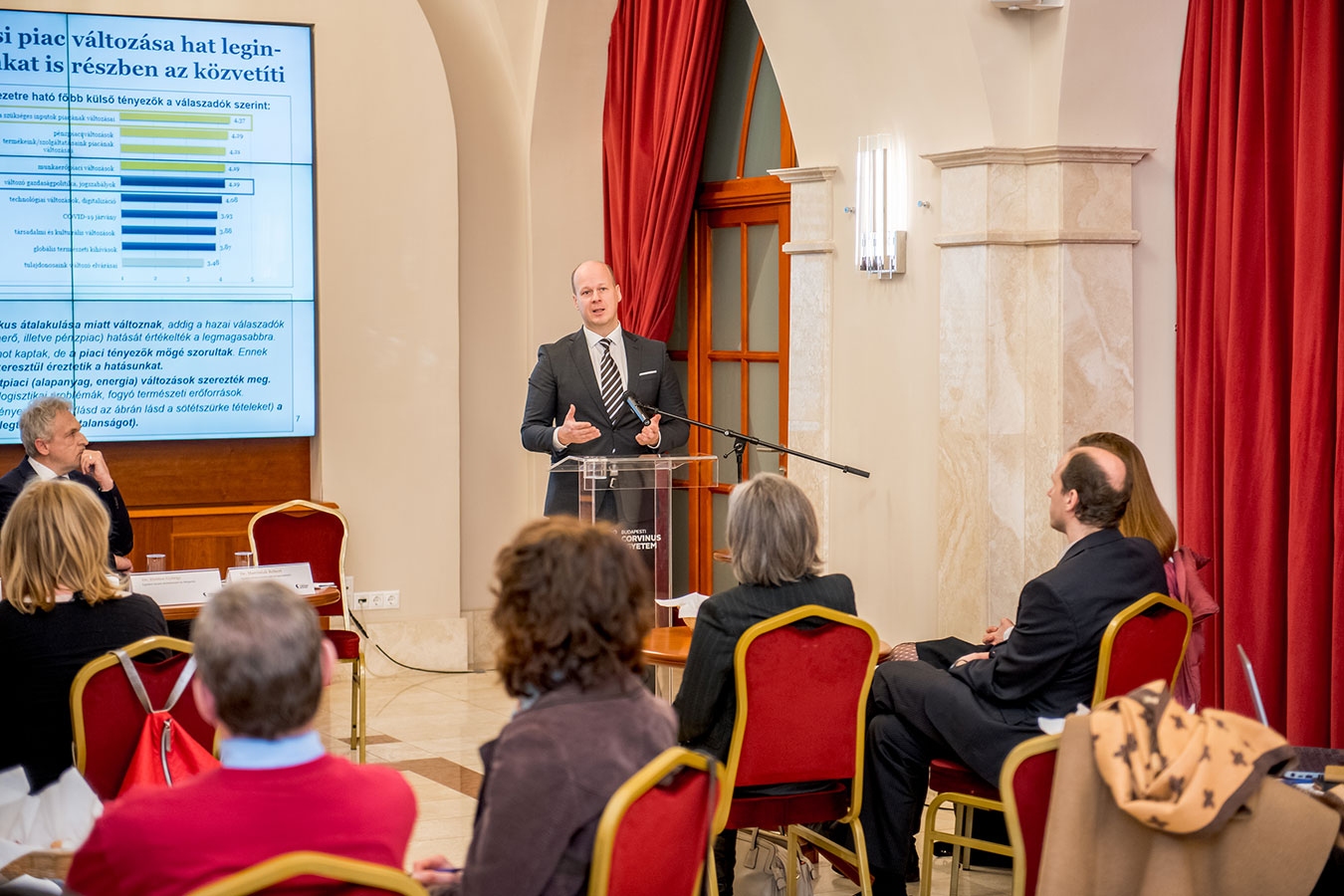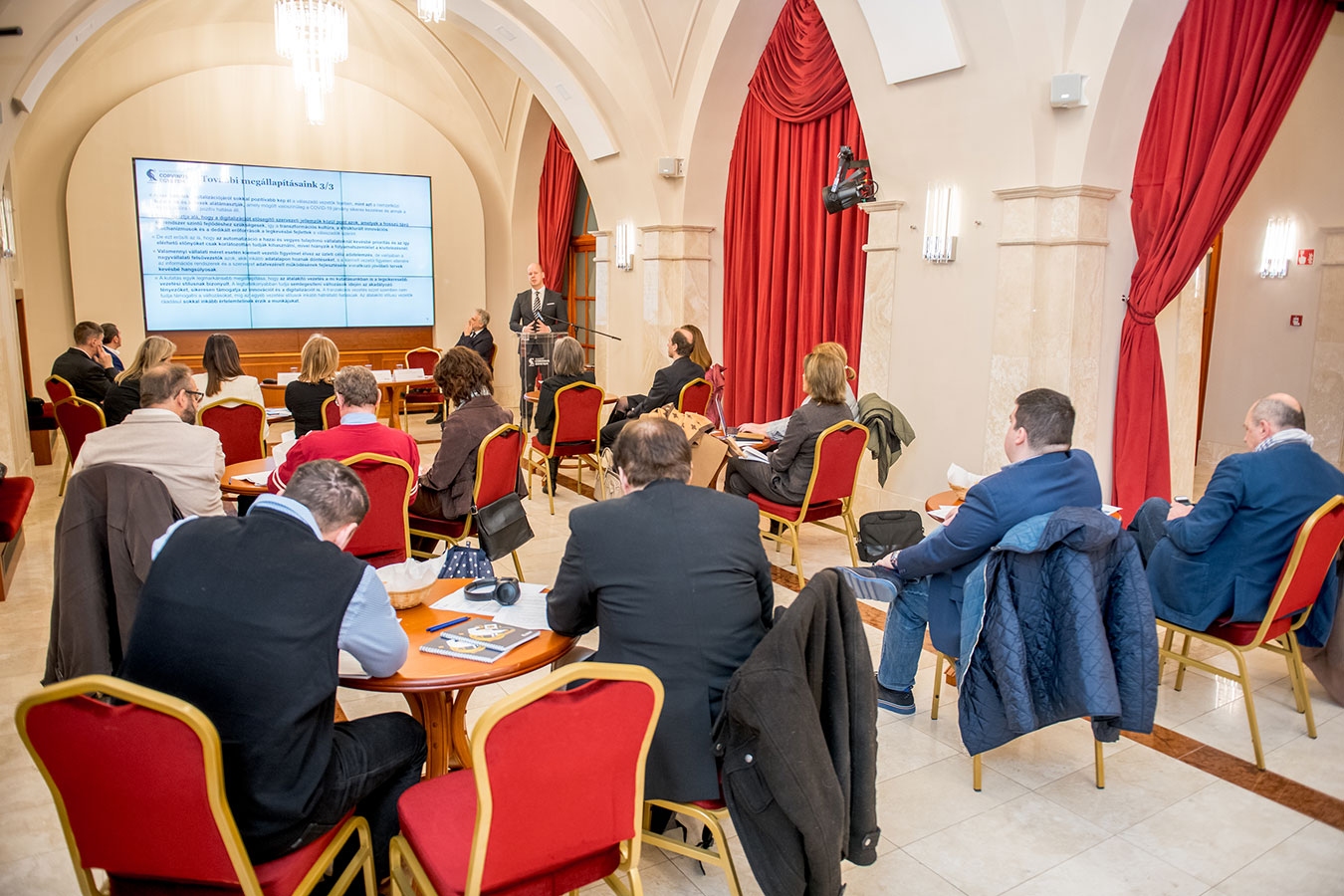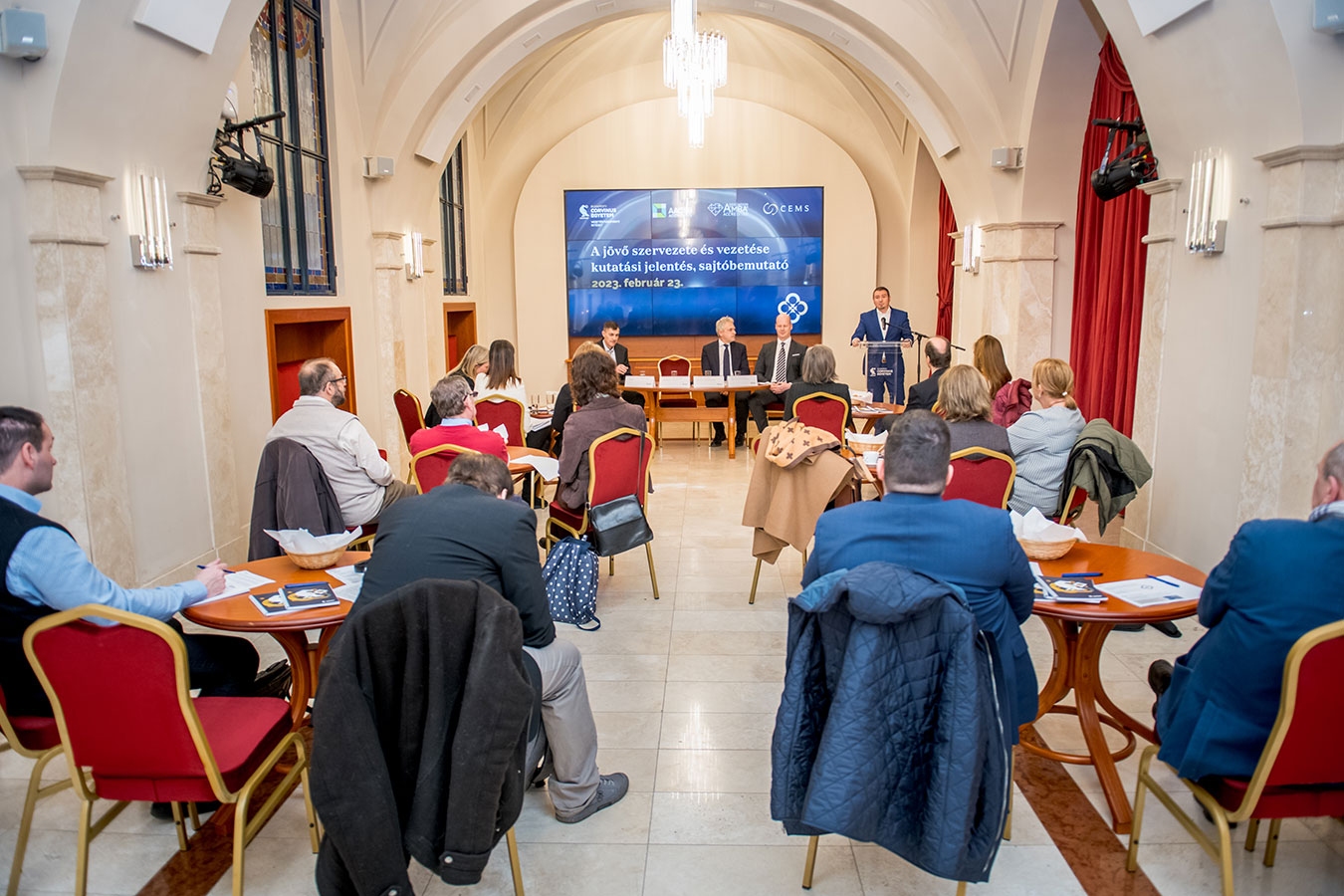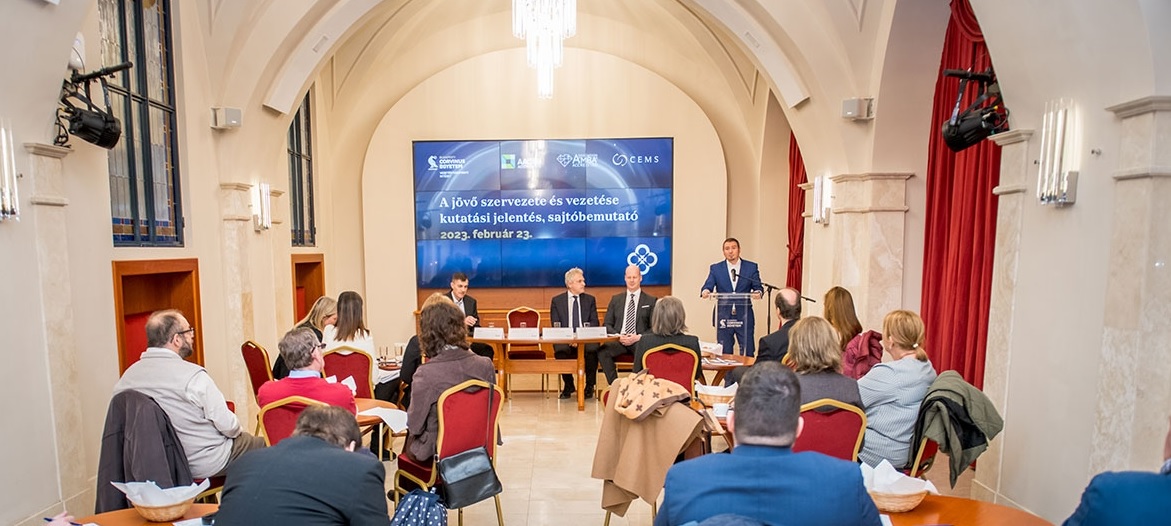Corvinus research: We still have a lot to do to make our enterprises future-proof
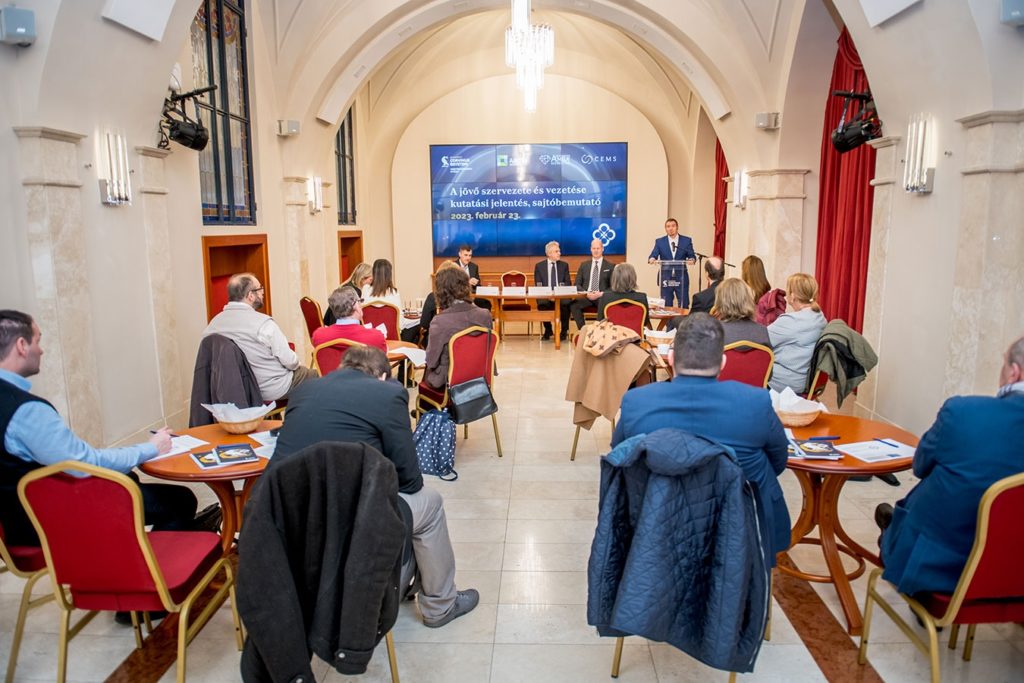
The staff of the Institute of Strategy and Management of the Corvinus University of Budapest conducted a comprehensive research about the organisation and the manager of the future in Hungary, and the first results were presented at a press conference at the University on Thursday. They were looking for answers to these questions: what kind of impacts will influence the operation of the organisations of the future, and how is it possible to successfully manage these impacts? In order to answer these questions, they have explored the current managing and organising practices, too.
Results of the research
In the survey titled The organisation of the future and its management, the senior managers of 305 Hungarian companies – with at least 50 employees and sales of HUF 100 M – were asked in a representative sample in the spring of 2022. The staff of the Corvinus summarised the results of the research in ten points:
- The vast majority of Hungarian managers asked also think that the organisation of the future is innovative and digital. At the same time, it is not necessarily flat, networking and knowledge-sharing – although international recommendations include these features, too.
- In the minds of most respondents, the manager of the future is still a ‘lonely hero’, who is well-prepared and manages the organisation in a dynamic manner. In contrast, international recommendations describe this person as a closely cooperating team member, who is able to inspire others, who is at home in the use of new technologies, and puts up with complex situations and uncertainty.
- At the same time, the examined businesses change continuously, and their organisation is primarily shaped by their direct environment, first of all the events on their procurement markets. It can be assumed that the impacts of global turbulences (e.g. Increased raw material and energy prices, logistics problems, shrinking natural resources) are also enforced partly through the procurement markets.
- It is a warning sign that preceding major international trends and crisis phenomena, the factor with the biggest impacts in the wider environment, i.e. demanding the most adjustments is the changing domestic economic policy and regulations.
- The examined businesses are able to accommodate external changes mainly by further improving their present operation. Their managers think that their organisational abilities requiring morecreativity and risk taking are weaker. It is the joint creation of values with customers (e.g. joint development) that they consider their least advanced ability.
- According to international recommendations, the organisation of the future has few hierarchic levels, and a lot of people work over the organisational boundaries (e.g. remote working, on contract, as hired labour). However, these two features were not valid at all for about half of the examined businesses.
- The self-assessment of respondents depicts a nicer picture about the digitalisation of Hungarian businesses, than we see in large international surveys. This may be related to the fact that the COVID-19 forced companies to use – and successfully, in most cases – new, mainly communication technologies. More detailed answers, however, refer to weaknesses, too, such as the underdeveloped status of the transformation culture, the structured innovation mechanisms and the dedicated organisational resources supporting digitalisation, and there seem to be massive development possibilities in extending automation to whole work processes, too, instead of point-like applications.
- The assessment of the digital culture of Hungarian businesses is further refined by the fact that although data analysis for business purposes, as a new technology, is given high priority in the whole sample, independently of company size, it is only the senior managers of large companies, who usually make data-driven decisions.
- As opposed to companies working exclusively for the domestic market, companies active on international markets, too, satisfy the image of the ‘organisation of the future’ better in the respect of almost all dimensions discussed so far. The same is true for domestic businesses with majority foreign ownership. In our assessment, internationalisation and being future-proof suppose each other.
- The examination confirmed that the so-called transformational leadership – as opposed to the traditional transactional and ‘non-managerial’ management styles – greatly contributes to the mitigation of factors hindering changes (e.g. resistance, low work morale), and supports innovation and digitalisation. In addition, transformation leaders – who think that, among others, inspiring motivation, idealising impact (setting an example) and intellectual stimulation are important – are more convinced that their work is meaningful.
Proposals to the managers of Hungarian businesses
‘It is of key importance for all businesses, and even for non-business organisations to follow professional recommendations regarding the organisation and the manager of the future, and this is critical for the national economy, too,’ said György Drótos, head of research at the press presentation. The researchers have defined eight recommendations that should be followed by the managers of Hungarian businesses.
- Train yourselves and your fellow managers in the subject of the organisation and the manager of the future! Watch and follow the new organisational and management solutions of successful companies in your industry!
- ‘Make the pyramid flatter’, and give more authority to direct supervisors and groups of mixed compositions!
- Put more emphasis on making sure that your managers have advanced digital skills and become real team members, who are both able and willing to intensively cooperate both inside and outside the boundaries of the organisation!
- Attempt to use automation and other digital technologies at process level and extend them to the whole organisation!
- Invest in technological solutions that allow for data-driven operation,but, in parallel with that, improve the decision-making culture of the organisation, too!
- For the successful implementation of big changes, learn and apply transformational leadership.
- Consciously bring up a new management generation, the members of which find the expectations against the organisation and the manager of the future natural!
- Do not make the preparations for the future in the form of individual actions, but in carefully planned programmes of several years! If necessary, ask for the help of experts involved in the topic both in academic way and in practice!
The complete flash report of the research is available in the University repository.

